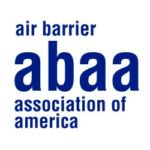Member Spotlight: Travis Dunn
The Air Barrier Association of America (ABAA) dives inside the career of Travis Dunn, Chief Marketing Officer for TSI Energy Solutions in Carmel, IN. In this feature interview, learn what made him become an ABAA member, what led him on his career path, and get his perspective on the future of the air barrier industry.
 Travis Dunn
Travis Dunn
Mr. Dunn has performed hundreds of diagnostics and new construction inspections over his 25+ years at TSI Energy Solutions. Mr. Dunn currently serves as Chief Marketing Officer, where he has worked closely with building owners, commercial construction contractors, subcontractors, glass contractors, air barrier installers, architects, and utility companies.
Mr. Dunn was one of the first certified energy raters and created a Moisture Control Program for builders in the 1990s. He has worked on hundreds of contracts involving water leak testing, air infiltration testing, building envelope inspections and infrared thermography for military and commercial buildings.
Mr. Dunn has performed air leakage testing, water leakage testing and building envelope inspections on many projects including at Butler University, Roche Diagnostics, Riverview Hospital, Fort Benjamin Harrison, St. Vincent Hospital, Pebblebrook Shopping Center. Mr. Dunn has performed testing involving ASTM E1186, ASTM E783, ASTM E1105, ASTM E779, AAMA 501.2 and other related testing procedures.
Mr. Dunn currently serves on the board of the Indiana Building Enclosure Council, which he helped create in 2018.
Name: Travis Dunn
Title: Chief Marketing Officer
Firm: TSI Energy Solutions
City: Carmel, IN
What was the path to your career?
A: I started out doing residential energy efficiency inspections as part of a utility company’s demand side management program back in the early 1990s. I became intrigued by construction and amazed at how poorly buildings were being constructed from an energy efficiency perspective.
Is there anything that you believe everyone in this industry should be working towards?
A: Working together to bring everyone up. We’ve recently started an Indiana Chapter of the Building Enclosure Council to create awareness and help educate all the players in the commercial construction industry.
What role have peers, mentors, or advisors played in your career?
A: Everything I’ve learned has been through someone else with more experience. I value the time I’ve spent with experts in their respective fields.
What led you to become an ABAA member?
A: I want to be at the leading edge of advancements in air barriers. In our region, we are pretty far behind other parts of the country so ABAA provides a valuable resource to help us learn of new technologies, systems, applications and more. We were one of the first companies to provide whole building air leakage testing of commercial buildings on a large scale, specifically Army Corps projects, and ABAA was instrumental in developing the Army Corps desire to test buildings so we wanted to be part of ABAA.
Are you involved in any ABAA committees? Do you have any ABAA certifications?
A: I do not personally, but we are looking into several that we haven’t been able to do because of Covid.
How long have you been in the industry?
A: Since 1993
What major changes have you seen?
A: In the 1990s and 2000s we saw a huge improvement in residential construction as it relates to energy efficiency. Just in the last 5-10 years we’ve started to see improvements in the commercial sector and I look forward to continued advancements. When we first started testing Army Corps projects about 10 years ago, I’d estimate that around half of the buildings we tested for air leakage failed. Now, the failure rate is closer to 10% and it usually has to do with failures in design.
What traits or skills do you think are necessary to be able to succeed in your industry?
A: A sincere desire to learn and grow.
Do you have any advice for anyone starting out in your field?
A: Spend as much time as you can out in the field, learning from experts in their trade. I’ve learned so much more by seeing things in the field compared to reading about things.
How much demand do you think there is for people in your profession?
A: The demand is definitely growing. It is exciting to see the private sector demand building envelope commissioning and higher energy efficiency standards.
What do you think the industry will look like in five or ten years’ time?
A: I believe that most of the energy efficiency and building commissioning we see now that is limited mainly to government, university and medical industries will become more common in the private sector. And, the cost of these additional services will come down as they become more like a standard for normal construction.
